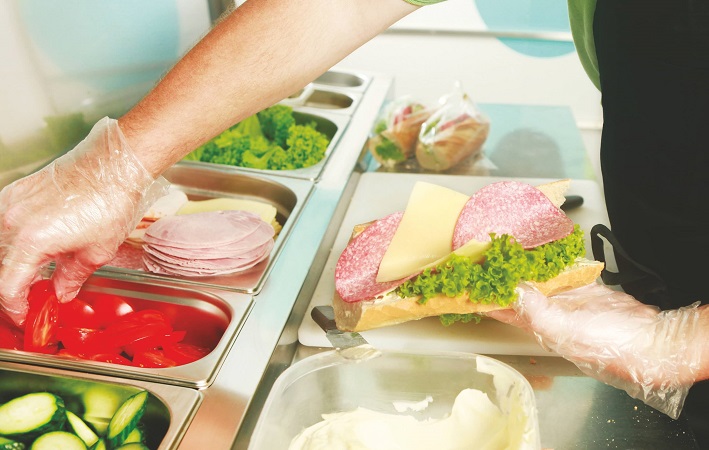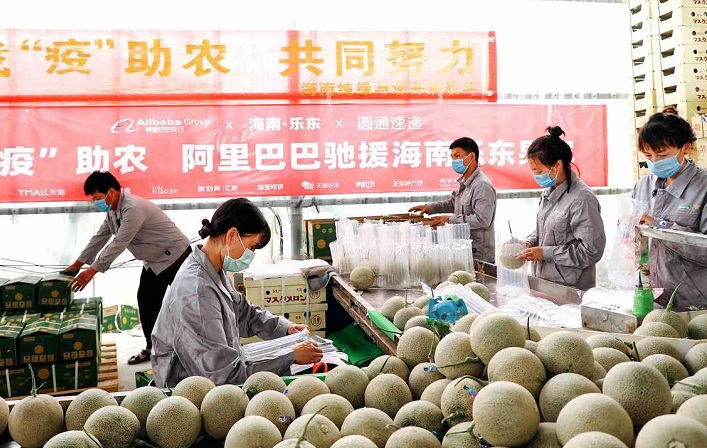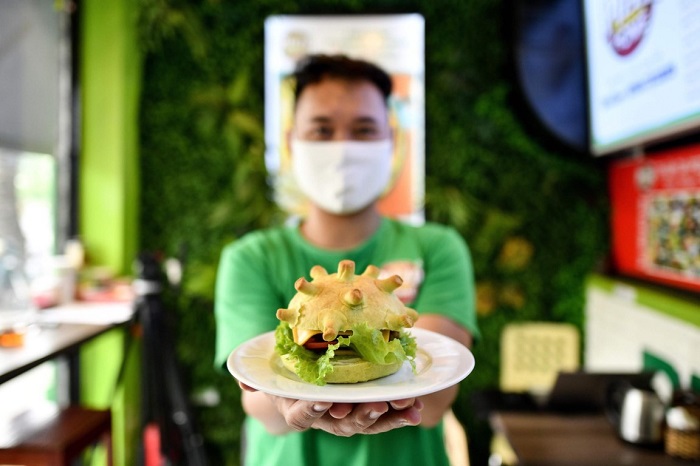We are amid one of the greatest health crises that the world has ever seen. The pathogen that causes the infection, is still under research on many of its characteristics. The highest threat from the SARS Cov-2 virus is its rate of spread. Questions have been arising from many corners of the world about the spread of Covid through cooked food.
Transmission of Covid
What we do know is that the principle mode of transmission is via respiratory droplets released when people sneeze, cough or exhale. The virus can also be spread indirectly when droplets land on objects and surfaces around the infected person, such as tables, doorknobs and handrails. People can become infected by touching these objects or surfaces, then touching their eyes, nose or mouth.

But the big question is: can we catch it from our food? To combat the virus and its spread, it is important to understand the science behind COVID-19. This science is continually evolving as new evidence emerges, but as mentioned, there remains a degree of mystery.
Spread from food
The clear opinion held at the beginning of the pandemic by trusted sources, including The World Health Organization (WHO), European Food Safety Authority (EFSA) and the Food Standards Agency (FSA), was that COVID-19 is not known to be transmitted by exposure to food or food packaging and that the risk of food or food contact materials as a transmission route for SARS-CoV-2 via consumption of food or handling food contact materials or packaging is very low. However, the FSA has acknowledged that the uncertainty factor is high.
Previous epidemics and food spread
Experiences from previous outbreaks of related coronaviruses, such as severe acute respiratory syndrome coronavirus (SARS-CoV) and Middle East respiratory syndrome coronavirus (MERS-CoV), show that transmission through food consumption did not occur. Here, it is important that we differentiate hazard from a risk, the mere presence of an infectious agent on food does not necessarily mean that an infection will occur.

The UK food sector is fortunate to have tried and tested hygiene management systems already in place. The Government continues to advise that food business operators should continue to follow the FSA guidance on good hygiene practices in food preparation and their Hazard Analysis and Critical Point (HACCP) processes.
Expert opinions
This opinion has been recently backed up by the respected International Commission on Microbiological Specifications for Foods (ICMSF), which just completed its own review. The ICMSF believes that it is “highly unlikely that the ingestion of SARS-CoV-2 will result in illness; there is no documented evidence that food is a significant source and/or vehicle for transmission of SARS-CoV-2”. While ingestion of the virus could potentially result in COVID-19 infection, oral transmission via food consumption has not been reported. Furthermore, SARS-CoV-2 should not be considered a food safety hazard since a true food safety hazard enters the human body with food via the gastro-intestinal tract.
So, the strongest belief is that Covid 19 has the potential to impact food safety indirectly. The restrictions which many countries have put in place to manage the spread of the virus has shocked the global food sector both economically and socially across the entire global food supply network. We have seen major disruptions to human resources, such as changes in key personnel; supply chains of ingredients, packaging, finished products and equipment, along with the transportation of people, materials and goods. The role that food professionals play to help businesses secure and assure food has never been more important.
There are, to date, no proven cases, scientific correlation or associations between food consumption and COVID-19. In expert opinion, it is highly unlikely that SARS-CoV-2 constitutes a food safety risk.




![The Top & Most Popular Seafood Bucket Restaurants in Dubai for you [Never Miss]](https://uae24x7.com/wp-content/uploads/2020/09/8-seafood-in-a-bucket-scaled-e1600739237403.jpg)
![Procedures for Renewing the Driving License in Abu Dhabi [3 Simple Steps]](https://uae24x7.com/wp-content/uploads/2020/07/Capture-9-e1595666454466.jpg)





